The Burrow

Heartbreak can be a difficult time for anyone, and the recovery time can be long. Speaking with a mental health professional can be a crucial part of the recovery process. However, as with many other medical appointments, mental health sessions can come at a cost.
Luckily, services such as health insurance exist to support you when medical care is necessary. Specifically, having a good extras cover policy in place can ensure you are covered for services such as mental health appointments. While each health fund offers different policies, some pay benefits towards marriage counselling as part of their psychology cover while others offer health management programs that could include mental health support. Regardless of the type of cover you might be looking for, it’s important that you compare your options to find a policy that is appropriate for your personal circumstances.
So, just how common is heartbreak? According to a survey by the health experts at Compare the Market, the average Australian has had their heart broken 2.44 times, with 74% experiencing heartbreak from a romantic relationship, 68% from the loss of a family member, and 47% from the death of a pet.
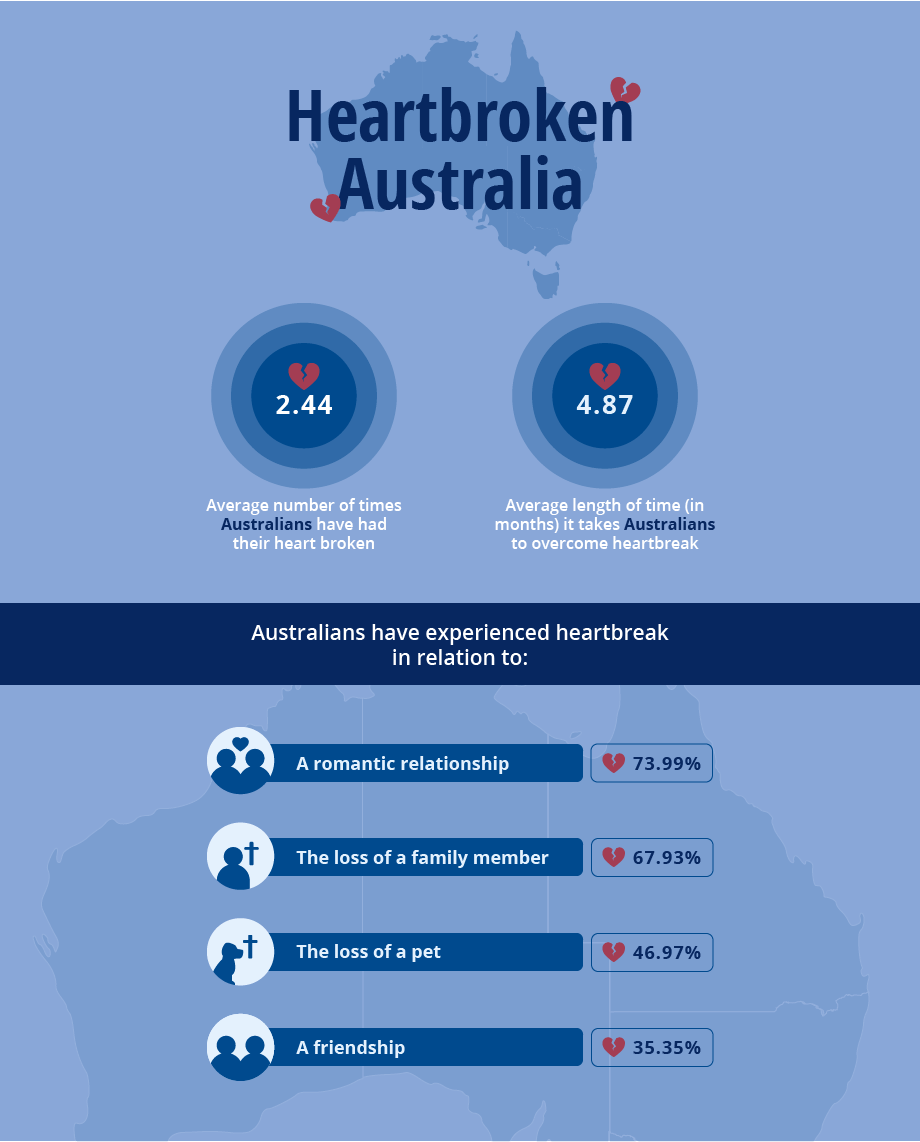
Additionally, it takes an average of 4.87 months for Australians to overcome their heartbreak. If you’re currently coming to terms with a loss, while it may be difficult now, it’s important to remember that you’re not alone, and that it’s a common event to experience.
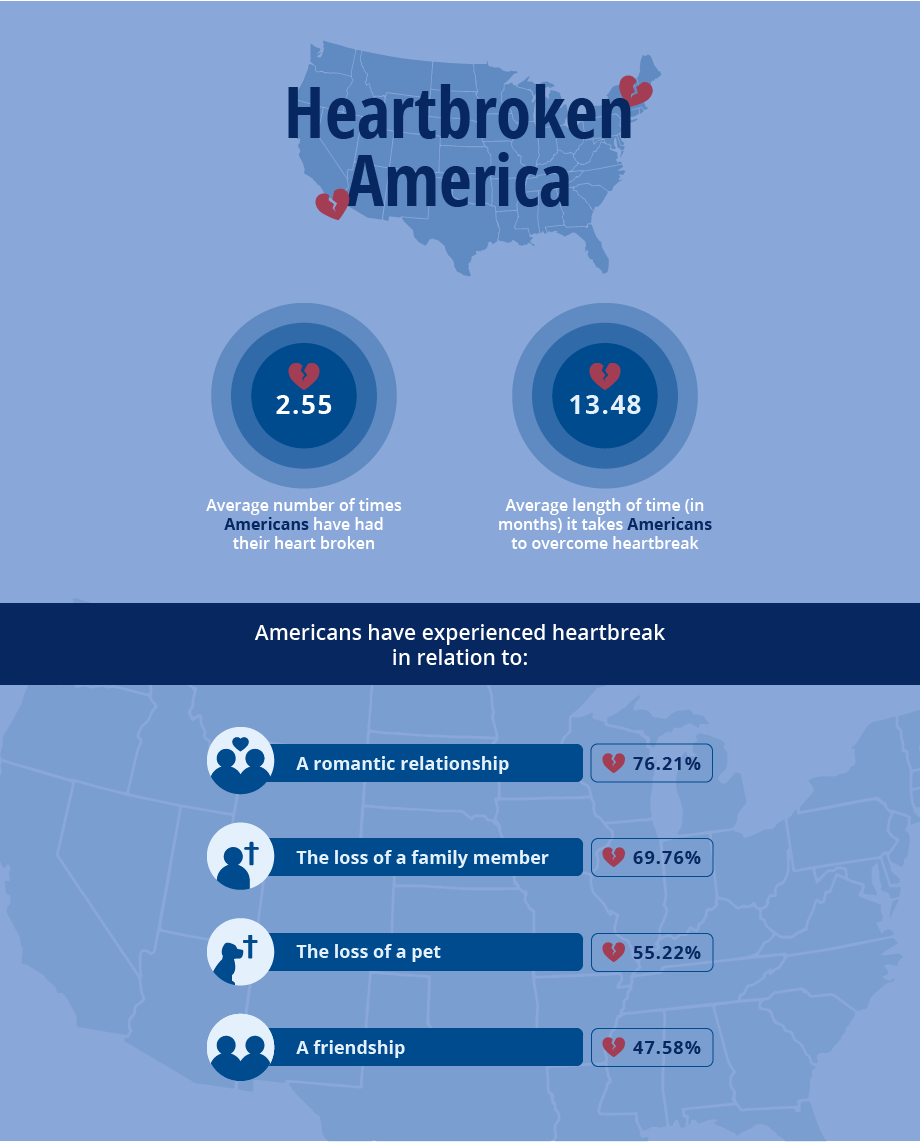
The average Australian and American have had their heart broken a similar number of times – in fact, the survey identified that it’s typically 2.55 times for Americans. Once again, romantic relationships top the list, with 76% going through a bad breakup. But it takes a lot longer for Americans to bounce back, at 13.48 months on average.
Nebraska is the heartbreak capital of the US, with the average person experiencing a devastating 3.33 heartbreaks in their lifetime. West Virginia comes a close second, at 3.29 broken hearts per person, followed by Wyoming, Oregon, and North Dakota.
Southern states tend to have fewer heartbreaks, with Wisconsin the only non-Southern state to feature on the list of least heartbreaks. Alabama residents get away the lightest, with an average of 1.83 heartbreaks in a lifetime, with Wisconsin in second place, at 1.87. Georgia, Louisiana, and Arizona make up the bottom five.
Mississippi residents take the longest to recover from heartbreak, with an average of 37.01 months. Oregon comes in second place, at 30.56 months, and West Virginia in third place. Maine and South Dakota make up the top five states that take the longest to overcome grief.
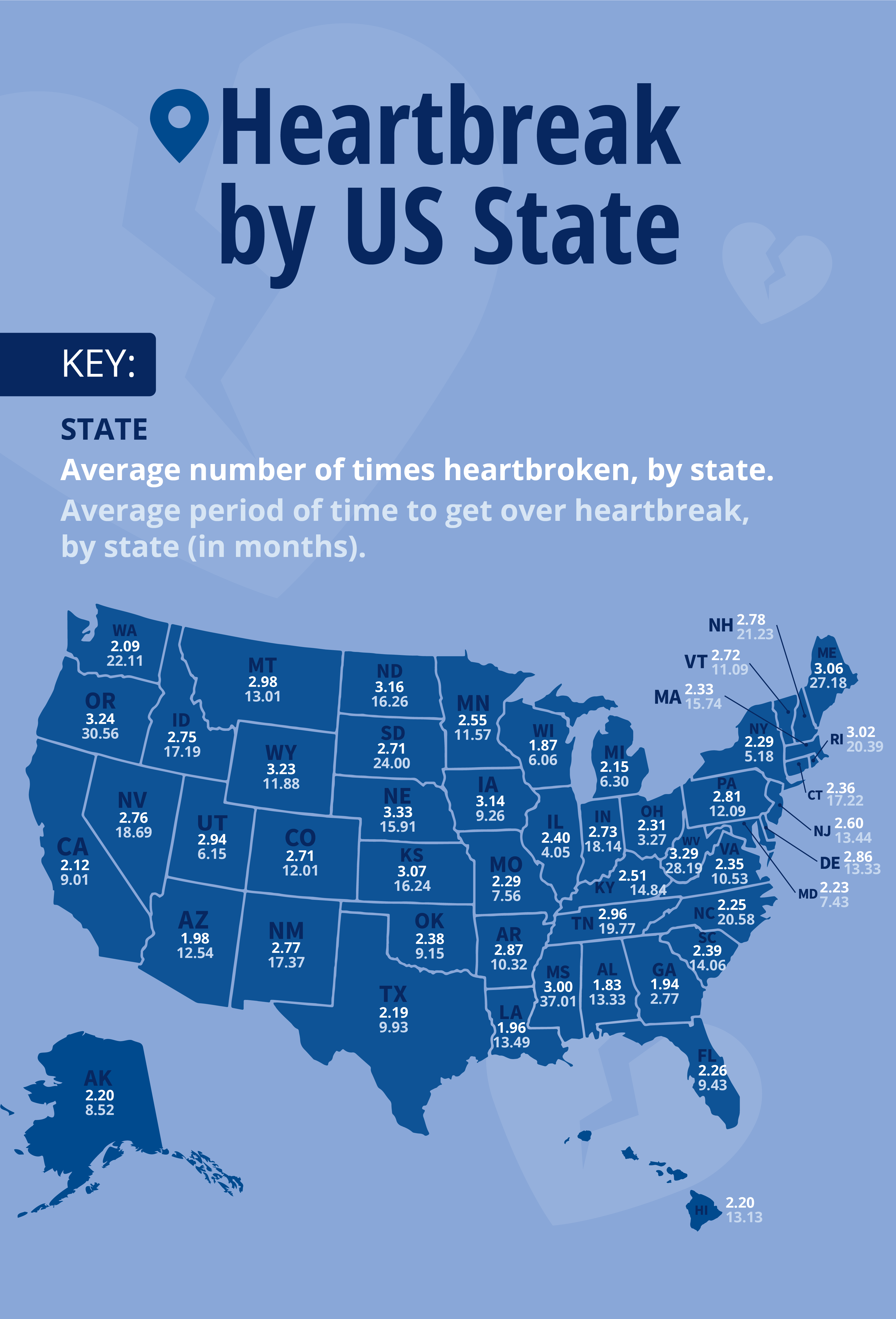
Heartbreak can be all-consuming and extremely difficult to deal with. We spoke with Dr. Marisa T Cohen, Head of Couple Relationships at Paired couples app who explained that people dealing with heartbreak may experience changes to their sleeping pattern, appetite, or weight, as well as suffer from headaches or stomach pains. It’s also possible to ruminate about the relationship, experience loneliness, and experience depression and/or anxiety as a result.
But just know that there’s light at the end of the tunnel, and there are things you can do to help you cope. Dr. Marisa T Cohen provided her top tips on how to effectively deal with heartbreak and grief – whether it’s from the breakdown of a relationship, the loss of a loved one, or the loss of a pet.
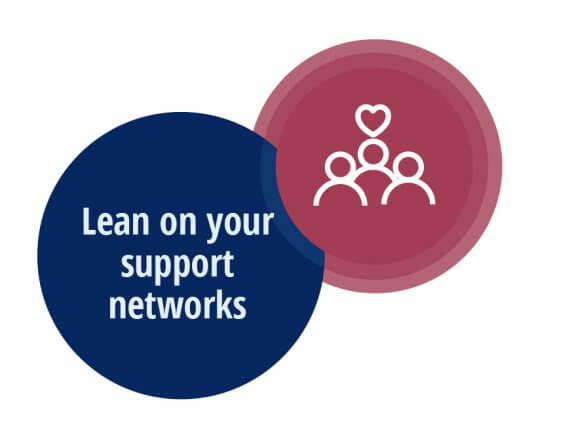
Reach out to family, friends, co-workers, or anyone within your network you trust. Social support systems serve as a strong protective factor and can help with the healing process, as well as the way in which you handle the pain and emotions you have experienced.
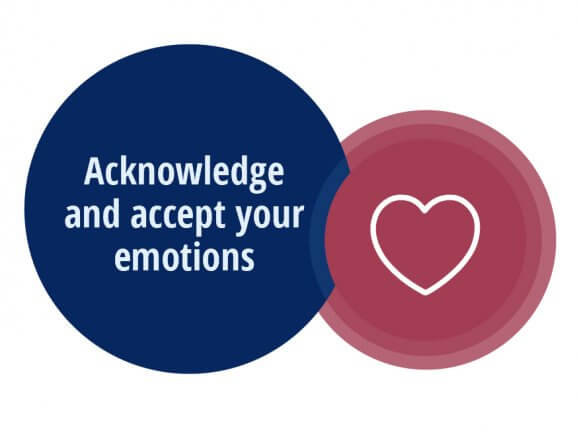
It is important to experience and be present with your emotions, practicing self-care and using coping strategies that have proven to be helpful for you in the past. Trying to force yourself to forget or rushing yourself can make the process more challenging.
Allow yourself to grieve, feel, and heal in your own time. The experience will be different for everyone and that is okay.
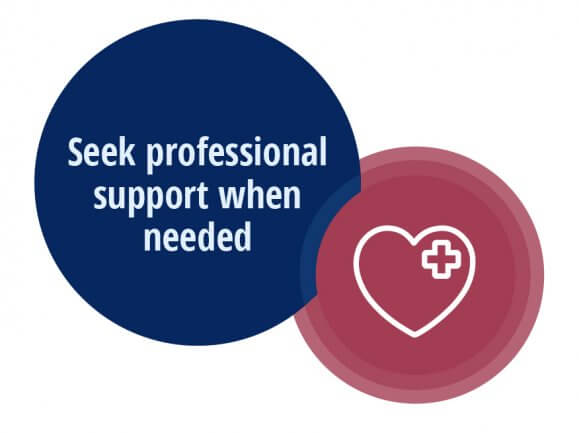
The grief experienced due to a broken heart can be intense; there is no need to go through it by yourself. Find a therapist or counsellor to assist you in processing the experience and emotions associated with the loss and in developing mechanisms and strategies to help you cope.
Brought to you by the health insurance experts at comparethemarket.com.au.